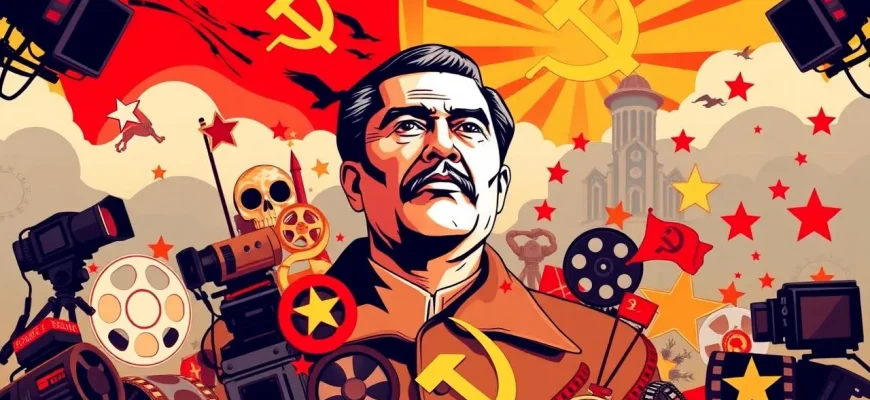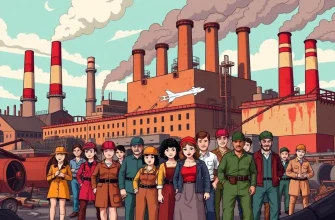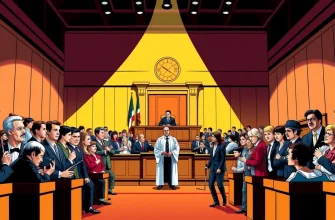Communism, a political and economic ideology that has shaped the 20th century, has inspired numerous films that delve into the lives of its proponents and opponents. This curated list of biographical films offers a unique window into the personal stories behind the grand historical narrative, providing both insight and entertainment. From the rise of revolutionary leaders to the fall of empires, these films capture the human aspect of a complex and often controversial era, making them invaluable for anyone keen to understand the personal dynamics of political movements.
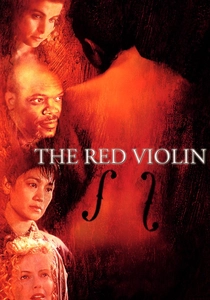
The Red Violin (1998)
Description: While not strictly about communism, this film features a segment set during the Cultural Revolution in China, illustrating the impact of communist policies on art and culture.
Fact: The film was nominated for Best Original Score at the Academy Awards, highlighting the universal appeal of its narrative.
 Watch Now
Watch Now
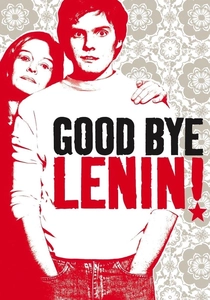
Good Bye, Lenin! (2003)
Description: A heartwarming yet poignant comedy-drama about a son who tries to shield his mother, a staunch communist, from the shock of the fall of the Berlin Wall by recreating the GDR in their apartment, showcasing the personal impact of political change.
Fact: The film was a huge success in Germany, becoming one of the highest-grossing German films of all time.
 Watch Now
Watch Now
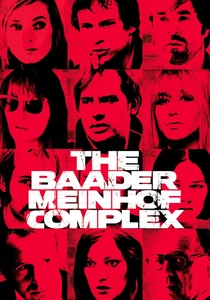
The Baader Meinhof Complex (2008)
Description: This film chronicles the rise and fall of the Red Army Faction, a radical left-wing militant group in West Germany, reflecting the turbulent political climate and the allure of revolutionary ideals.
Fact: It was nominated for the Best Foreign Language Film at the 81st Academy Awards.
 Watch Now
Watch Now

The Way Back (2010)
Description: Inspired by the true story of a group of prisoners escaping from a Siberian gulag during World War II, this film sheds light on the harsh realities of life under Soviet rule and the indomitable human spirit.
Fact: The film was directed by Peter Weir, known for his work on "Dead Poets Society" and "The Truman Show."
 Watch Now
Watch Now
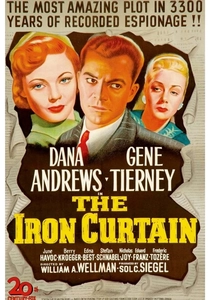
The Iron Curtain (1948)
Description: A Cold War thriller based on the true story of Igor Gouzenko, a Soviet cipher clerk who defected to Canada, revealing Soviet espionage activities, which was one of the earliest Hollywood films to tackle the subject of communism.
Fact: The film was banned in the Soviet Union and its allies due to its anti-communist stance.
 30 Days Free
30 Days Free
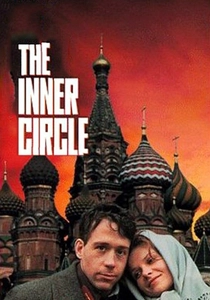
The Inner Circle (1991)
Description: This film tells the story of Ivan Sanshin, a Soviet cinema projectionist who becomes part of Stalin's inner circle, highlighting the personal and ethical dilemmas faced by individuals in a totalitarian regime.
Fact: Tom Hulce, known for his role in "Amadeus," plays Ivan, bringing a nuanced performance to the screen.
 30 Days Free
30 Days Free
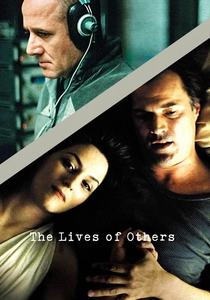
The Lives of Others (2006)
Description: This film explores the life of a Stasi officer in East Germany who becomes increasingly disillusioned with the regime as he monitors a playwright and his lover, offering a nuanced look at the impact of surveillance and control under communist rule.
Fact: The film won the Academy Award for Best Foreign Language Film in 2007, and it was the first German film to win this award since
 30 Days Free
30 Days Free

The Red Chapel (2009)
Description: A documentary that follows a group of Danish comedians who travel to North Korea under the guise of a cultural exchange, providing a rare glimpse into life under one of the last remaining communist regimes.
Fact: The film stirred controversy for its ethical implications, but it also won several awards for its bold approach to documentary filmmaking.
 30 Days Free
30 Days Free

